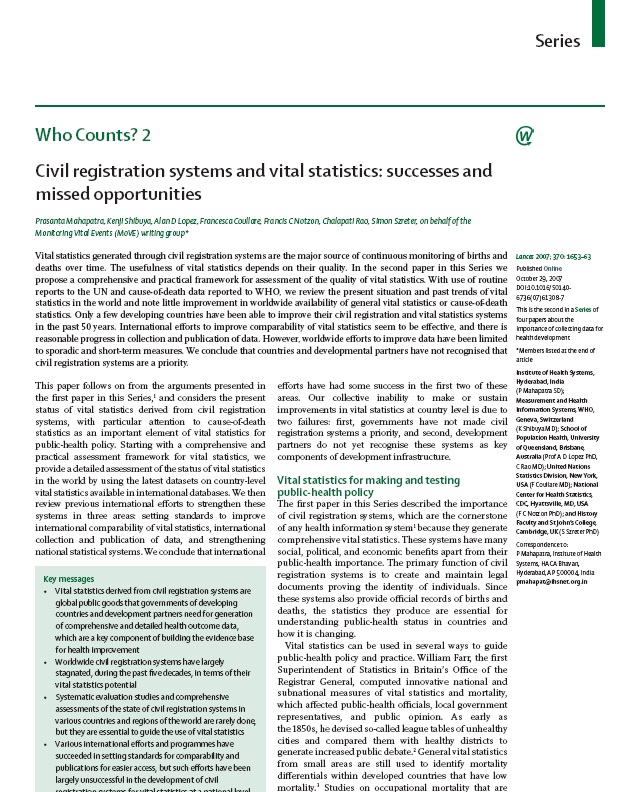Sub-regional Workshop on applying principles and recommendations for implementing the Regional Action Framework for strengthening CRVS
The workshop was jointly hosted by the UNSD and ESCAP in Istanbul, Turkey from 15 to 18 September.
|
The CRVS community in Asia and the Pacific has reflected on where it stands at the midpoint of the CRVS Decade (2015-2024) during the Second Ministerial Conference. Following this celebration of progress, many of our partners and member countries are leading actions to fill the remaining gaps. To learn more about CRVS in Asia and the Pacific, please subscribe to our newsletter, which offers a monthly panorama of CRVS actions throughout the region Previous editions can be found here. |
The workshop was jointly hosted by the UNSD and ESCAP in Istanbul, Turkey from 15 to 18 September.
The forty-seventh session of the Commission will discuss, among others, statistical support for the implementation of the 2030 Sustainable Development Agenda, refugee statistics, big data and the International Comparison Programme. In addition to CRVS discussions under the agenda item at the Commission on Demographic Statistics, three CRVS related side events will be held to the 47th session of the Commission . These include a seminar on CRVS systems emphasizing the important relation between SDG’s for the on 2030 Agenda and CRVS.
The article illustrates the large variability of estimates and the tendency to underestimate uncertainty in South Africa and conclude that unless a country has a nationally representative system to track maternal deaths, there is likely to be a great deal of uncertainty about maternal mortality.
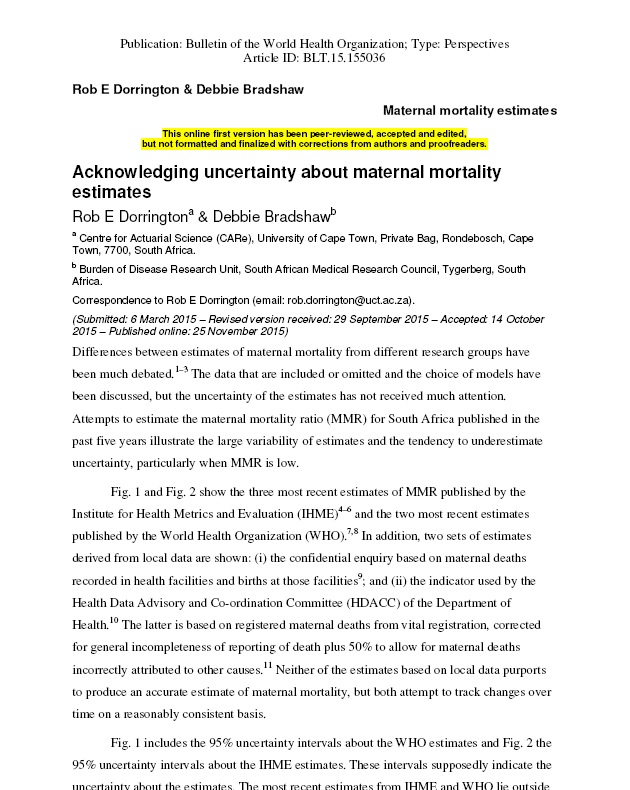
This publication serves as a report of an Expert Roundtable that was held in Bangkok on the 28th and 29th of October 2010 to discuss initiatives in South East Asia in the field of statelessness and provides an insight into some of the region’s good practices. In accordance with the agenda of the meeting itself, good practice examples are included from each of the four pillars of response: the identification, prevention and reduction of statelessness and the protection of stateless persons.
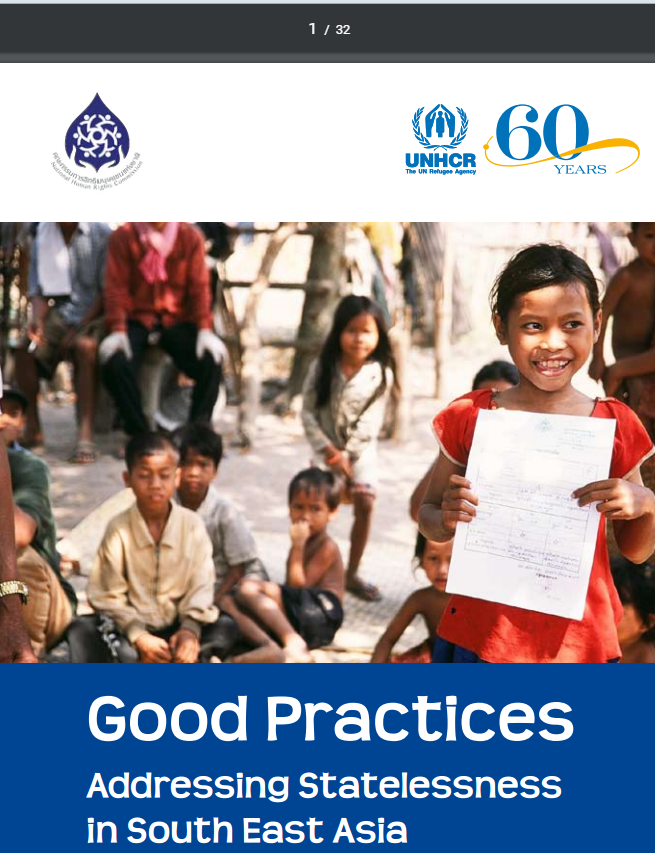
Pakistan is a leader in the application of identification systems and technology to a range of development issues. The National Database and Registration Authority (NADRA) of Pakistan has become a central player in a number of program areas and has been internationally recognized for its expertise, including winning many awards for excellence. Pakistan has pioneered applications of biometric technology, successfully administering smart card programs for disaster relief programs and financial inclusion schemes for the underserved.
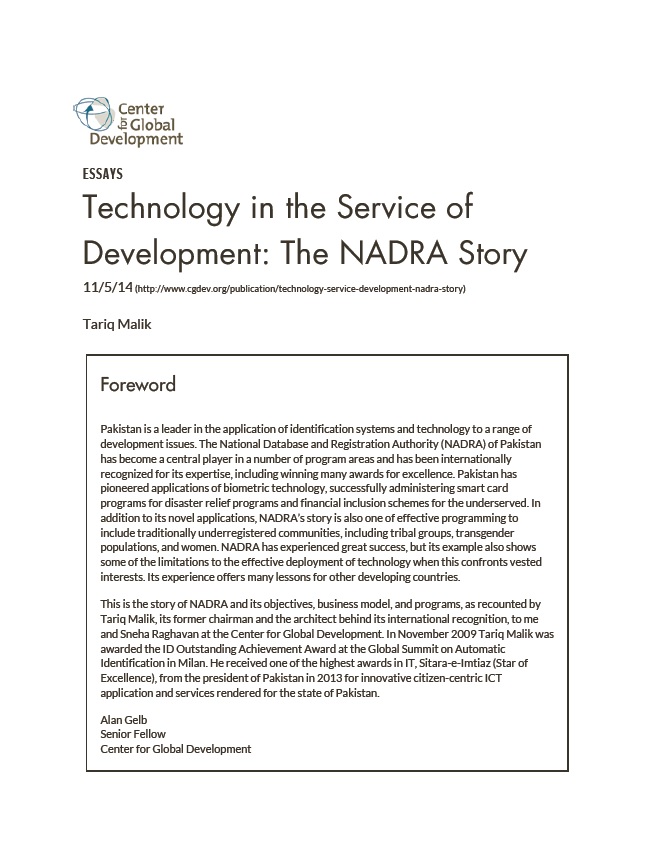
Sample Vital Registration with Verbal Autopsy (SAVVY) is a system for strengthening vital events monitoring and measurement, including causes of death. SAVVY provides nationally representative information about levels and causes of mortality as well as other indicators not available from other sources.
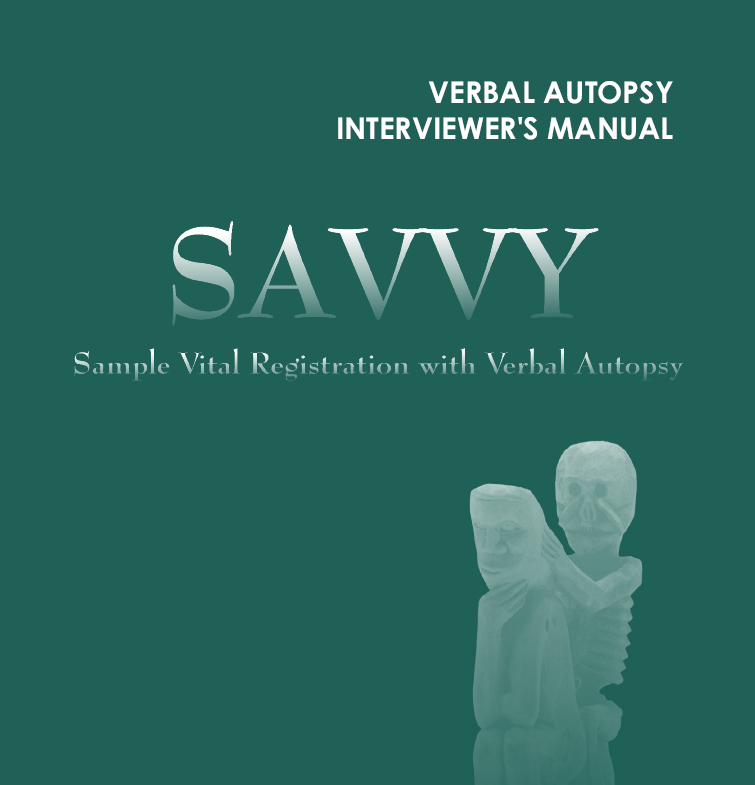
Vital statistics derived from civil registration systems are global public goods that governments of developing countries and development partners need for generation of comprehensive and detailed health outcome data, which are a key component of building the evidence base for health improvement • Worldwide civil registration systems have largely stagnated, during the past five decades, in terms of their vital statistics potential • Systematic evaluation studies and comprehensive assessments of the state of civil registration systems in various countries and regions of the world are rarely
